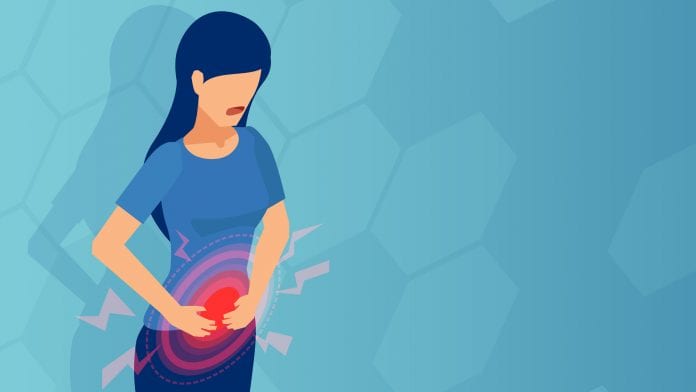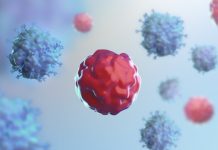
A new study has shown that people who take a common drug for inflammatory bowel disease (IBD) have a dampened immune response to the first dose of a COVID-19 vaccine.
A large-scale study led by the University of Exeter and the Royal Devon and Exeter NHS Foundation Trust found that IBD patients who use the commonly prescribed drug infliximab had poor anti-body responses after a first dose of COVID-19 vaccine. The researchers say that IBD patients who use this drug should not assume they are protected after a first dose.
Infliximab is an anti-tumour necrosis factor (anti-TNF) biologic drug, prescribed to around two million people worldwide. These types of drugs are effective treatments for immune-mediated inflammatory diseases, however, as they suppress the immune system, they reduce the effectiveness of vaccines and increase risk of serious infections.
Based on the findings, the researchers recommend that people taking anti-TNF drugs should be considered a priority for a second vaccination.
The findings have been published in GUT, and the paper is from the CLARITY Study, funded by the NIHR and Crohn’s and Colitis UK.
Vaccine response in IBD patients
The study measured the antibody responses of 865 people treated with infliximab after vaccination with the Pfizer/BioNTech or the Oxford/AstraZeneca COVID-19 vaccine, finding that people treated with infliximab had significantly lower concentrations of antibodies, when compared to 428 people on an alternative treatment, vedolizumab.
After a single dose of either of the vaccines, the researchers found that only about one third of participants treated exclusively with infliximab generated adequate levels of antibodies for the vaccine to be considered effective. In participants who were taking both infliximab and immunomodulator drugs, such as azathioprine or methotrexate, the levels of antibodies were even lower after a single vaccine dose.
The findings did show, however, that in a sub-group of people who had a previous COVID-19 infection, as well as in the few patients studied who had already had a second dose of vaccine, the vaccine-triggered antibody responses rose significantly. The team say this indicates an effective response after two exposures.
CLARITY study lead Dr Tariq Ahmad said: “Poor antibody responses to a single dose of vaccine exposes these patients to a potential increased risk of COVID-19. However, we found much higher antibody levels in people vaccinated after a previous COVID-19 infection and in the small number of patients who had received two vaccine doses suggesting that all patients receiving these drugs should be prioritised for optimally timed second doses.”
Co-author Dr Nick Powell, of Imperial College London, said: “Although we know that this has been an incredibly difficult time for people with IBD, our research indicates that people treated with infliximab should consider that they are not protected from COVID-19 until they have had both doses of a vaccine and should continue to practice enhanced physical distancing and shielding if appropriate.”
Urgent research needed
A small sub-set of patients showed no antibody response even after two exposures to COVID-19, and antibody responses were also lower in current smokers and participants aged 60 or older, but higher in non-white participants. The team say that these findings warrant further investigation in larger studies before firm conclusions can be drawn.
Co-author Dr James Goodhand, of the University of Exeter, said: “Our findings come as countries across Europe are opting to delay the second dose of vaccine. We recommend prioritising second doses to patients taking anti-TNF drugs, who will remain at high risk after their first dose. Further data are needed to investigate whether we should be testing antibody concentrations after two doses to identify the small number of patients who have not responded well to vaccination.”
Sarah Sleet, Chief Executive of Crohn’s & Colitis UK, said: “This is the first robust evidence that people with Crohn’s and Colitis – who may need to take specific drugs to suppress their immune system – do not develop the expected antibodies after their first vaccination dose, although a second dose does improve antibody levels. With one in five not developing antibodies even after two doses, these people will be desperately worried that they remain at risk of catching COVID-19 and may develop a more serious illness at a time when shielding has ended.
“We need urgent research on the optimal time between the first and second jabs, and the need to be prioritised for any booster jab this Autumn.”








